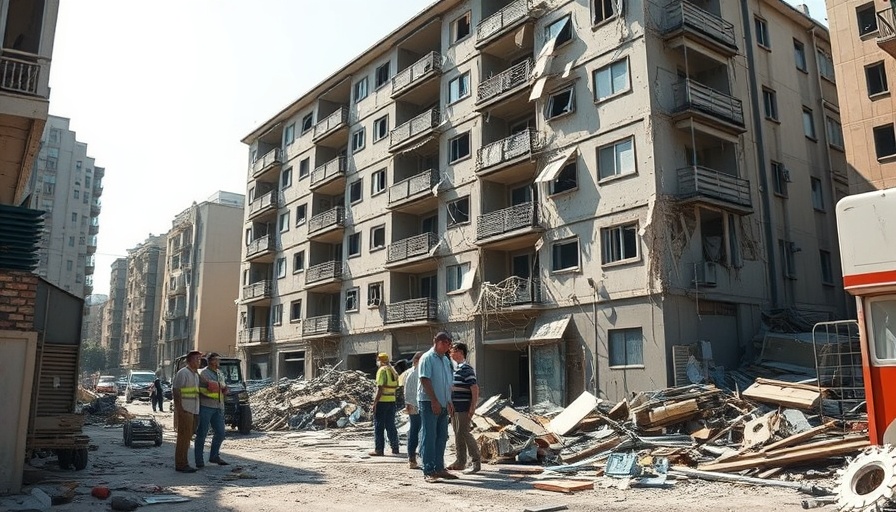
Trump's Stance on the Iran-Israel Conflict: A Critical Overview
As the conflict between Israel and Iran escalates, President Trump has made it clear that his administration has limited leverage in influencing Israel's military actions. Speaking to reporters, he stated, "Iran didn’t want to speak to Europe; they want to speak to us," dismissing European diplomatic efforts as ineffective.
Understanding the Context of the Ongoing Hostilities
The recent surge in military aggression from both Israel and Iran marks a troubling period in the region's history, with missile attacks and airstrikes marking the eighth consecutive day of hostilities. Recently, an Iranian missile struck a building in Haifa, leaving emergency personnel scrambling to respond. This conflict represents deep-rooted tensions that have been inflamed by a complex web of historical grievances, failed negotiations, and retaliatory strikes.
What Does This Mean for U.S. Foreign Policy?
Trump’s suggestion that he has little control over Israel’s actions raises questions about the United States' role as a mediator. While criticizing European powers for their diplomatic attempts in Geneva, the President reiterated that a successful outcome might rely solely on talks between the U.S. and Iran. He stated, "It’s a little hard to get someone to stop," indicating his perception of the asymmetric nature of military effectiveness—where Israel currently seems to be gaining an upper hand.
The Impasse of European Diplomacy
The unsuccessful negotiations in Geneva exemplify the struggle that European nations face in trying to engage Iran. Despite the foreign ministers from Britain, France, and Germany pushing for continued dialogue, Iran’s top diplomat Abbas Araghchi has expressed a firm stance: diplomatic discussions will only resume once conditions of aggression are addressed. This impasse highlights a significant barrier in international efforts to stabilize the region.
Implications for Regional Security
The ongoing conflict poses significant risks not only for the immediate parties involved but also for regional security. With both Israel and Iran holding steadfast to their strategic goals, the potential for a wider conflict increases substantially. Observers worry that any miscalculation on either side could have explosive repercussions throughout the Middle East, drawing in neighboring countries and global powers.
Future Scenarios: The Path Ahead
As the situation evolves, several potential outcomes could emerge. One scenario involves a hardening of positions, where both Israel and Iran persist in their military strategies, potentially leading to more destructive engagements. Conversely, a breakthrough could occur if the U.S. decides to adopt a more conciliatory or innovative diplomatic approach, reflecting on lessons learned from previous negotiations.
Public Sentiment and Reactions
The U.S. public's response to Trump's handling of the Iran situation is mixed. While some citizens perceive his dismissive approach towards European diplomacy as a necessary assertion of American strength, others are concerned about the implications of such a strategy on long-term foreign policy and international relations. Citizens are increasingly aware of the dangers lurking in continued military confrontations, particularly as they could involve U.S. forces directly as tensions escalate.
Conclusion: The Need for Comprehensive Responses
As America grapples with its role in a rapidly changing global landscape, addressing the increasingly volatile Israel-Iran dynamic remains paramount. Understanding the multifaceted challenges and potential paths towards peace is critical in forming effective responses. Whether through diplomacy, strategic alliances, or military considerations, the path forward will require nuanced and multifaceted strategies to avert a deeper crisis.
 Add Row
Add Row  Add
Add 




Write A Comment